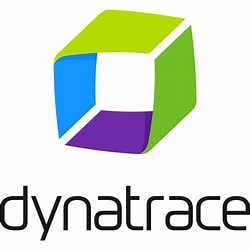
OpenStack is an open-source cloud computing platform that allows organizations to build and manage public and private clouds. Known for its flexibility and scalability, OpenStack provides a suite of modular components for managing compute, storage, networking, and identity within a cloud environment. By offering Infrastructure as a Service (IaaS), OpenStack enables businesses to deploy and scale virtualized resources on demand. With support from a broad community of contributors, OpenStack is widely used by enterprises and service providers to create custom, open-source cloud solutions that integrate with existing infrastructure.
Compute (Nova): Manages and automates the provisioning of virtual machines (VMs) and compute resources, allowing organizations to scale and allocate resources as needed.
Object and Block Storage (Swift and Cinder): Provides durable object storage (Swift) for large, unstructured data and block storage (Cinder) for file-based storage, offering flexibility in managing data across applications.
Networking (Neutron): Manages complex networking operations, such as IP management, VLANs, firewalls, and load balancing, ensuring robust connectivity and secure, isolated environments.
Identity and Access Management (Keystone): Centralizes user authentication and policy management, offering secure access control across OpenStack components.
Image Service (Glance): Manages virtual machine images, providing an image repository for standardized OS templates and application snapshots.
Dashboard (Horizon): Offers a web-based interface for managing and monitoring cloud resources, providing visibility and control for users and administrators.
Orchestration (Heat): Automates the deployment of infrastructure with templates, allowing users to define and manage complex stacks of applications and resources.
Open-Source Flexibility: OpenStack’s open-source nature allows organizations to customize their cloud infrastructure according to their specific needs without vendor lock-in.
Scalability and Cost Efficiency: OpenStack’s modular architecture enables organizations to scale resources up or down based on demand, optimizing cost and performance.
Community Support and Integrations: A large community of contributors continuously improves OpenStack, ensuring frequent updates, compatibility with new technologies, and integrations with popular platforms.
Improved Resource Management: With components dedicated to compute, storage, and networking, OpenStack enables efficient resource allocation and management across cloud environments.
Enhanced Security and Control: Identity management and network isolation features allow organizations to secure data, control access, and comply with regulatory requirements.
OpenStack is widely used by organizations looking to build open-source, customizable cloud solutions, including:
Telecommunications: Supports network function virtualization (NFV) and provides scalable, agile infrastructure for telecom services.
Research and Academia: Enables research institutions to build cost-effective, scalable data storage and compute environments for scientific research.
Government and Public Sector: Provides secure, compliant, and scalable infrastructure for government agencies with strict regulatory requirements.
Enterprise IT: Offers a flexible, open-source alternative to proprietary cloud services, helping enterprises reduce costs and maintain control over infrastructure.
Hosting and Service Providers: Allows service providers to offer private and public cloud services to clients, using OpenStack as the core infrastructure platform.

Maxihost is a bare metal cloud platform that provides dedicated servers with on-demand provisioning…

Miro is a powerful visual collaboration platform designed to enable consultants, teams, and organiz…

Dynatrace is an advanced application performance monitoring (APM) and observability platform that l…